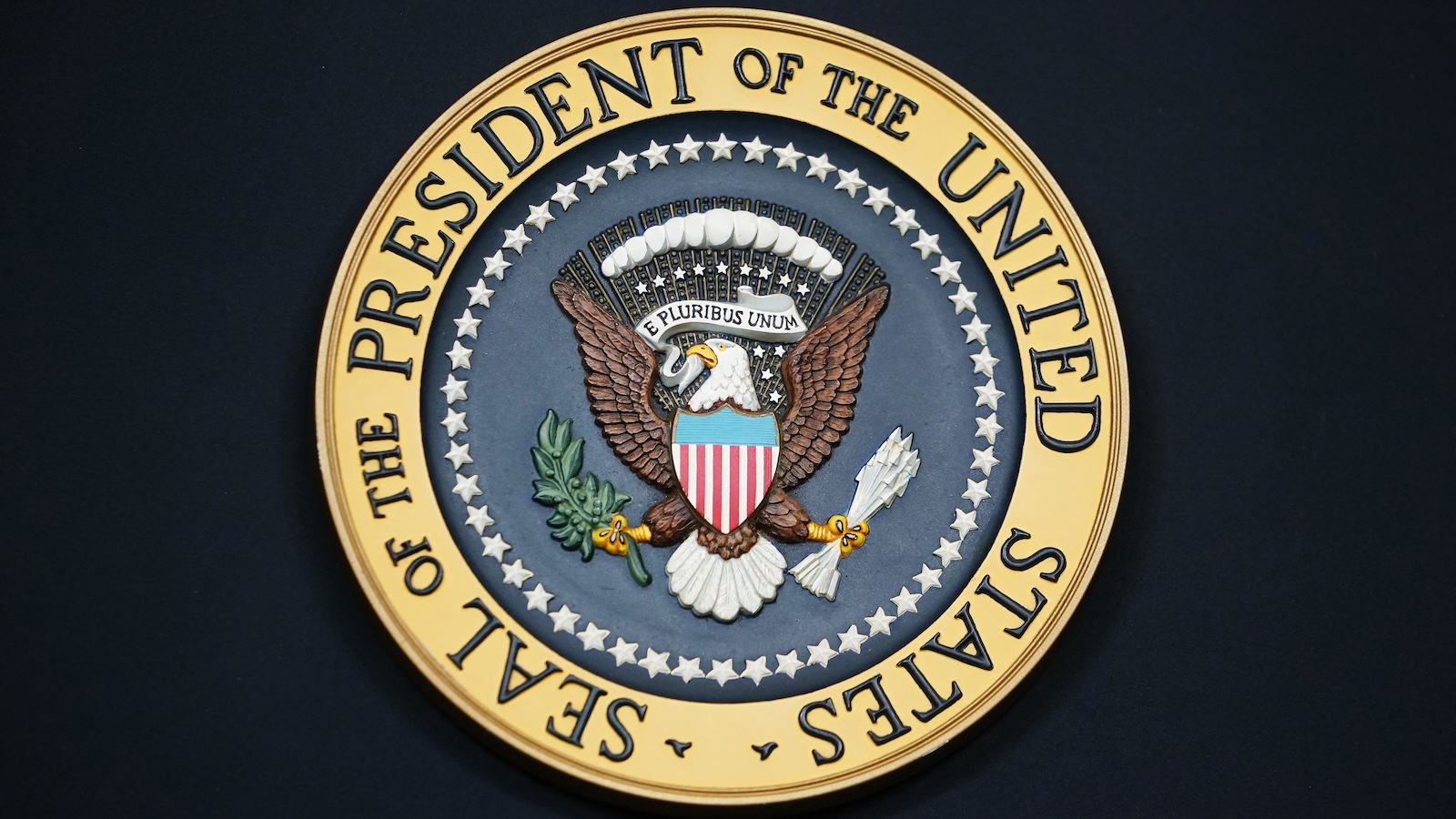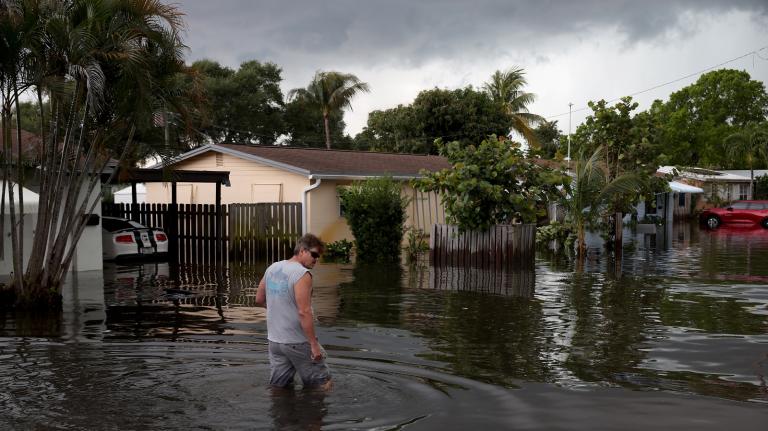Whoever ends up in the White House after next week’s presidential election will face a suite of crises related to the unchecked production of plastics: toxic pollution and greenhouse gas emissions from manufacturing facilities, chemicals leaching from the 20 million metric tons of plastic that wind up in the environment every year, and microplastic contamination throughout people’s bodies, just to name a few.
Thankfully, there are a number of ways the next chief executive could address the problem. Ahead of the election, the nonprofit Beyond Plastics has released a list of 27 priorities for the next presidential administration — a sort of wish list of ways to significantly reduce the production, use, and disposal of plastics “for the sake of public health and the environment.” It builds on previous demands for a “Plastic-Free President” put together by a coalition of environmental groups just before President Joe Biden assumed office.
“For whoever is elected president, I think we’re at a key moment” to tackle the plastics crisis, said Judith Enck, Beyond Plastics’ president and a former regional administrator for the Environmental Protection Agency.
According to Enck, the most important thing the world can do to mitigate plastic’s harms is to stop making so much of it in the first place. Of the 420 million metric tons of plastic produced globally every year, only 9 percent gets recycled — the rest is sent to landfills or incinerators, or becomes litter in the environment. The U.S. president can’t solve the problem on their own, but they can support reduced plastic production as part of the global plastics treaty being negotiated by the United Nations. Those negotiations have been ongoing since 2022 and were originally scheduled to conclude by the end of this year, but Enck suspects they’ll be extended into 2025. If that’s the case, the next president will have an opportunity to add specificity to the Biden administration’s commitment — announced in mid-August — to support limits on plastic production and the use of hazardous chemical additives in the pact.
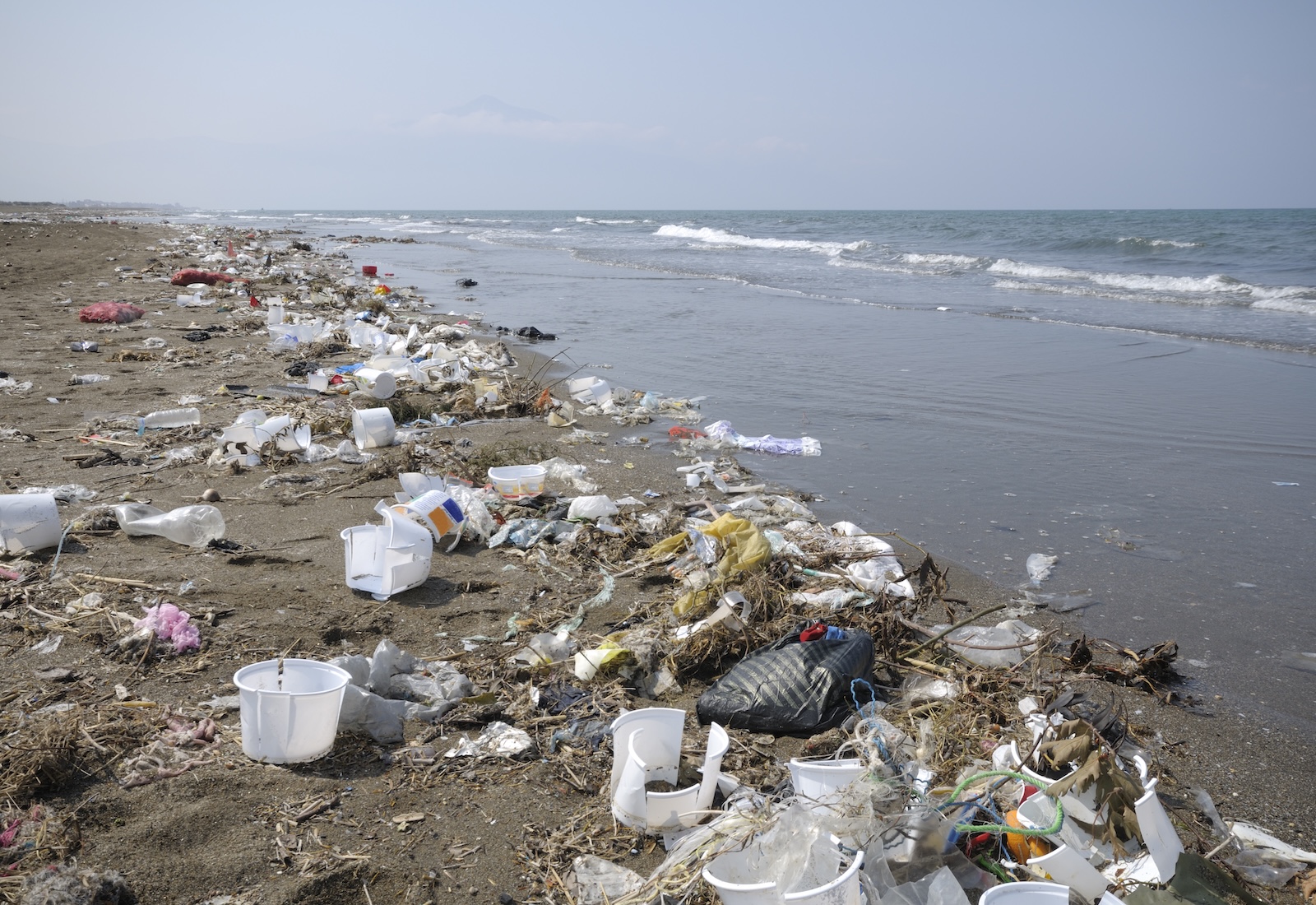
If the treaty is eventually ratified by Congress — perhaps a tall order, given the Senate’s tendency to reject international agreements — then it’ll become legally binding, and the executive branch will have to work with lawmakers to implement it. Depending on what’s in the final text of the pact, this could involve passing a national packaging reduction law, a bill to incentivize the reclamation and recycling of plastic bottles, or a policy requiring new washing machines to come with filters to prevent plastic microfibers from escaping into waterways. Of course, the White House and Congress could still pursue these policies if the U.S. isn’t a party to the global plastics treaty. Many of them are already included in some form as part of the Break Free From Plastic Pollution Act, a Democratic bill that was introduced for the third time during this year’s legislative session.
Independent of the treaty and congressional considerations, there are many other actions the next president could take to address the plastics crisis.
Beyond Plastics calls for the next presidential administration to issue a moratorium on new or renewed permits for petroleum refining and plastics manufacturing plants, as well as facilities dedicated to “chemical recycling” — a term for processes that supposedly use heat and pressure to reconstitute low-quality plastics into new products but that have largely failed to deliver on that promise. These restrictions could advance environmental justice, since petrochemical and chemical recycling facilities are often located in low-income communities that bear the brunt of associated air and water pollution.
The next president could also issue an executive order for federal agencies to phase out certain types of financial aid to the petrochemical industry — like Energy Department grants for research on chemical recycling and federal loan guarantees for plastic incineration facilities. Federal agencies can also ensure that plastic companies actually pay up when entering into settlement agreements related to the pollution they’ve caused, and that they don’t deduct these payments from their taxes. Enck suggested that government funding be redirected to building out reuse infrastructure: things like water stations, dishwashing equipment in public schools, and commercial bottle washing operations for breweries and wineries.
The next presidential administration could direct executive agencies like the Justice Department and the Federal Trade Commission to pursue additional interventions. The former could launch investigations into the plastics industry for contributing to marine and terrestrial pollution, and for falsely advertising plastics’ recyclability — as some state attorneys general have already done. The latter could strengthen its guidelines on plastic-related sustainability claims through a document called the Green Guides, and it could bring enforcement actions against companies that use the “chasing arrows” recycling symbol on non-recyclable plastic products.
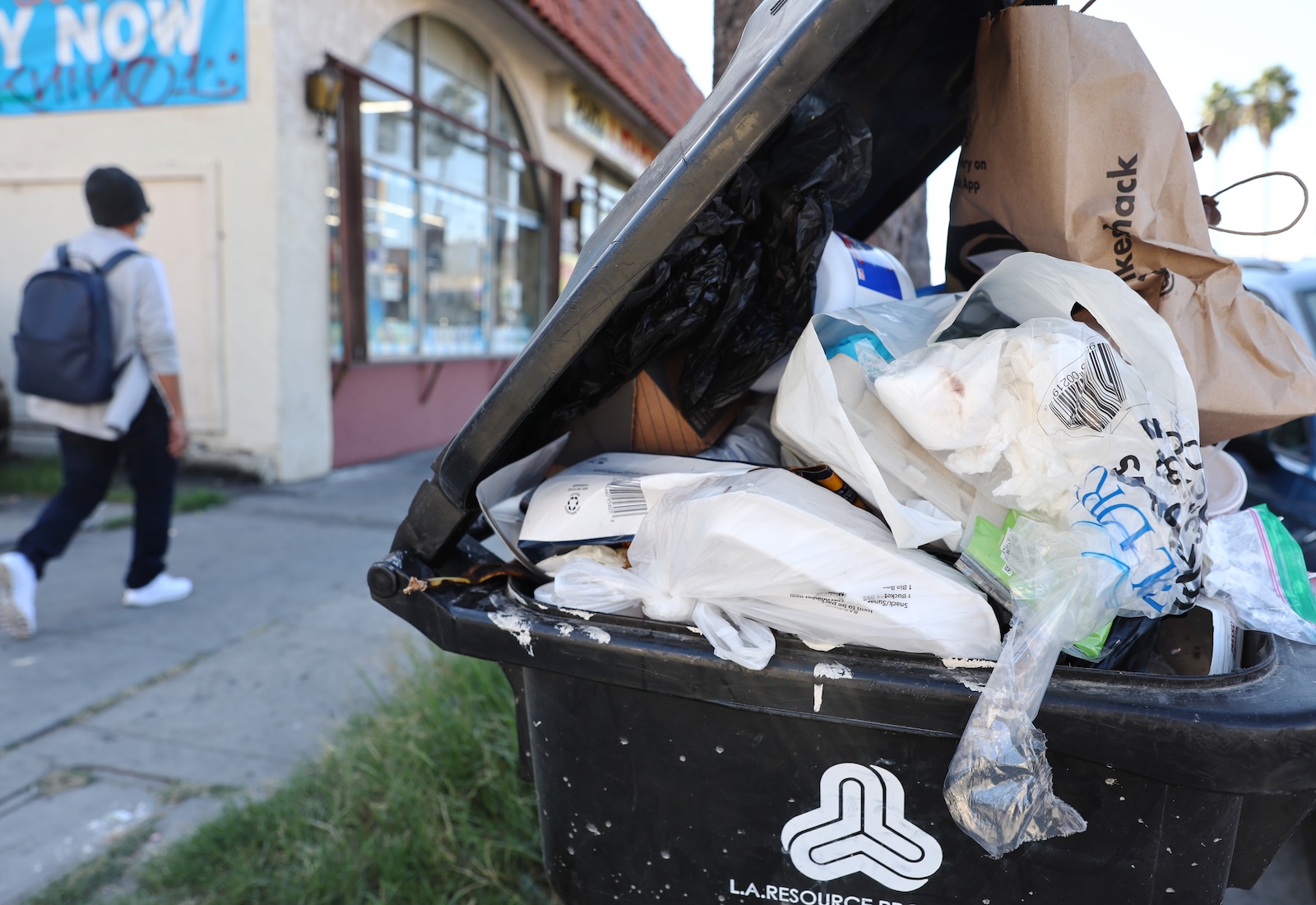
“We need our leaders to guard against industry’s false solutions, including against plastic recycling,” said Erica Cirino, communications manager for the nonprofit Plastic Pollution Coalition, which was not involved in Beyond Plastics’ list of priorities.
Beyond Plastics also calls for the next administration’s Labor Department to create a “just transition” plan for petrochemical industry workers affected by plastic-reduction measures; for the National Institute of Health to fund studies on the health impacts of microplastics and nanoplastics, the tiny fragments that shear off of larger plastic items over time; and for the General Services Administration to prioritize reusable or refillable options in all federally funded buildings and institutions. That last action item would build on a commitment unveiled by the Biden administration in July to cease federal procurement of single-use plastics from all federal operations by 2035.
The list of regulatory possibilities is so long that some experts argue there’s a need for a “plastics czar,” akin to the role of climate czar that has been played by John Podesta, John Kerry, and Gina McCarthy. “Because of the scope and the breadth of the plastic issue across its life cycle, all agencies have a role to play,” said Rachel Karasik, a plastics research scientist at the Norwegian Institute for Water Research, which focuses on a range of water-related issues, including plastic pollution. “A plastics czar could help mobilize and coordinate that in a really meaningful way.”
Enck said she’s “hot and cold” on the title “czar,” but agreed that it would be helpful to have a top-level White House representative on plastics to provide leadership. She also said it will be important for the next administration to ensure various bodies, including the Council on Environmental Quality, the National Oceanic and Atmospheric Administration, and the Department of Energy, are led by staff who are well-informed on plastics.
Plastics industry groups don’t have their own bullet-point list of priorities for the next presidential administration. But if they did, it would likely be in direct opposition to much of what Beyond Plastics is calling for. The American Chemistry Council has previously called on the White House to support increased plastic production in order to meet “sustainable development and climate change goals.” (Plastics are used in renewable energy technologies and to “deliver clean drinking water,” the industry group said in an April press release.)
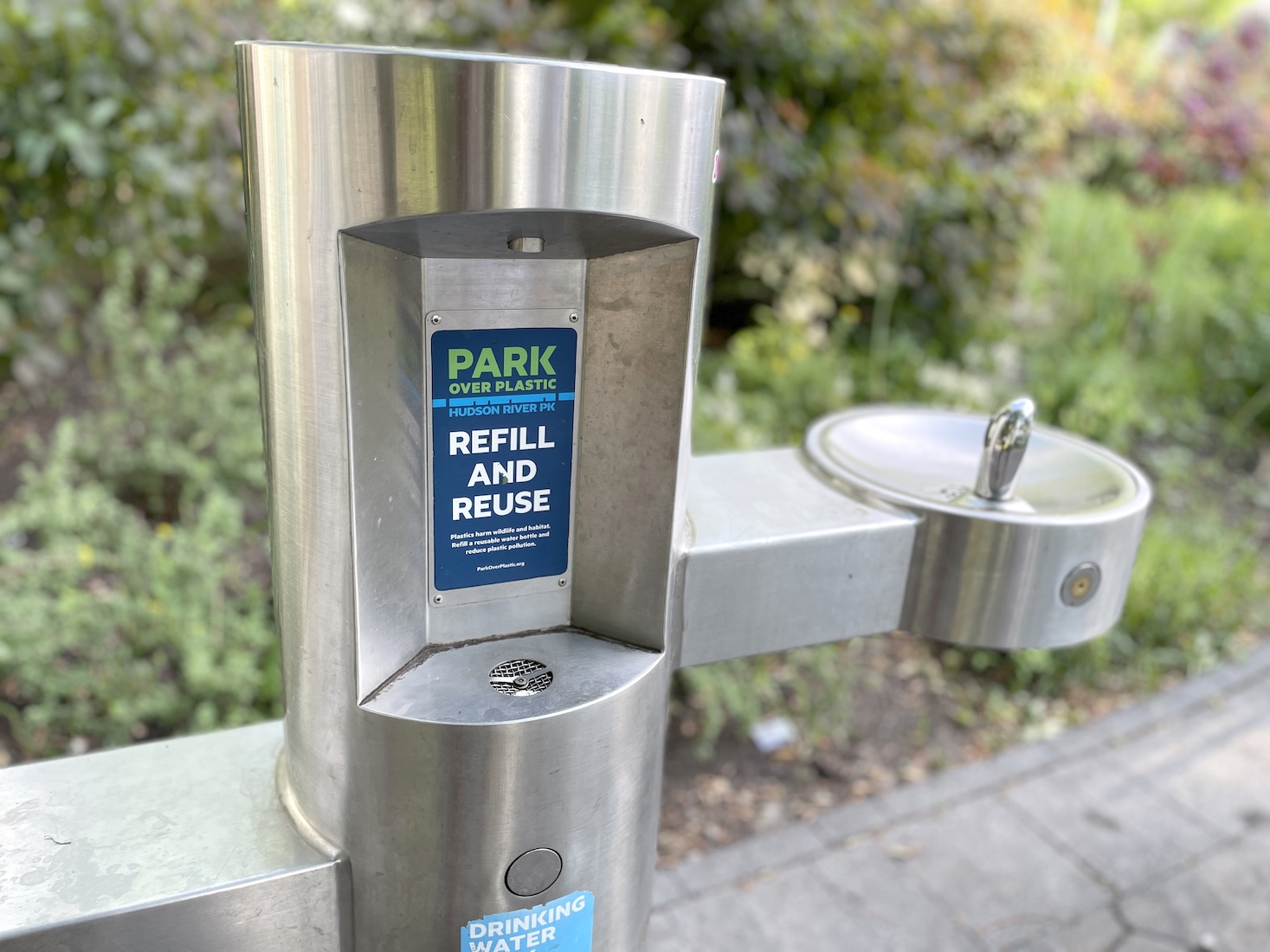
The American Chemistry Council and other lobbying groups also oppose restrictions on plastic-related chemicals, chemical recycling, and government procurement of single-use plastics, as well as updates to the Green Guides to make it harder to advertise products as recyclable. They’ve come out against proposed legislation to ban plastic foam and stop companies from releasing pre-production plastic pellets into waterways. Instead, the industry favors policies that promote plastics recycling, including loosened federal air pollution regulations for chemical recycling facilities and the legitimation of a deceptive way of calculating recycled content known as “mass balance.” Several of these priorities are outlined in a bipartisan federal recycling bill introduced last month. The bill is widely supported by pro-plastic lobbyists.
If former President Donald Trump assumes the White House next year, advocates worry that he would implement some of those wish-list items from the federal recycling bill, since they don’t all require congressional approval. During his previous term, he took credit for the opening of a new petrochemical facility in Pennsylvania and derided bans on single-use plastics. And according to a former Trump White House official who spoke to Politico in April, Trump would also take a “hard-nosed look” at any outcome of the plastic treaty negotiations and potentially reject it.
“If Trump wins and it’s a good treaty, he’ll just pull us out the way that happened with the Paris accords,” Enck said, referring to the United Nations’ 2015 agreement to tackle global warming.
If Vice President Kamala Harris wins, environmental advocates predict she will continue many of the Biden administration’s efforts to address the plastics crisis, like supporting production limits as part of the U.N. plastics treaty and phasing out single-use plastic items from federal operations. Enck said Harris is likely to retain current heads of the Environmental Protection Agency, the Federal Trade Commission, and the General Services Administration — plus other agencies — who are more likely to support environmental priorities than potential Trump appointees.

